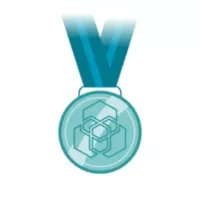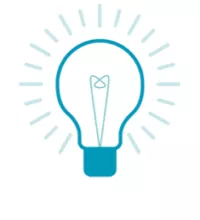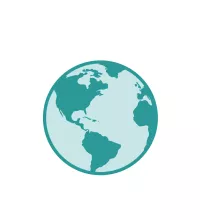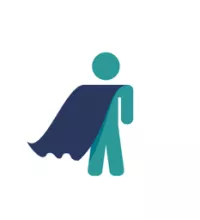Schmidt Science Fellows (SSF), in partnership with the Rhodes Trust, aims to develop the next generation of science leaders to transcend disciplines, advance discovery, and solve the world’s most pressing problems. Applications are now being accepted for this year’s cohort of outstanding scientists.
SSF Fellows are exceptional and ambitious scientists, prepared to take scientific risks to achieve global impact. Read about the current fellows.
Fellows are offered:
- A personal stipend of US $110,000 per year for up to two years of postdoctoral study in a different area from your PhD, at any approved location worldwide.
- Scientific freedom to pursue ambitious research goals, take risks, and have bold ideas.
- Personalized mentoring to help develop as scientific and societal thought leaders.
- Bespoke professional development curriculum delivered across three week-long residential convenings and a rich set of virtual offerings through our Science Leadership Program.
- Lifelong fellowship community with continued support, interaction, and collaboration opportunities. This stimulating and caring fellowship community is at the heart of the Schmidt Science Fellows Program and is a distinguishing factor among other postdoctoral funding opportunities.
Eligibility
In order to be eligible for nomination to the Schmidt Science Fellows application process, candidates must meet the following requirements:
- Have conducted their PhD research in the natural sciences (Astronomy, Biology, Chemistry, Physics, and Earth Sciences), Engineering, Mathematics, or Computing – or any of the sub-disciplines, at one of our nominating partner institutions. Individuals on clinical track MD-PhD or Veterinary-PhD programs are not eligible.
- Students from these UCSF PhD programs are eligible: Bioengineering, BMI, BMS, Biophysics, CCB, DSCB, Neuroscience, PSPG, and Tetrad
- Have completed, or expect to complete, all of the requirements for the conferral of their PhD in one of these fields between May 15, 2025 and June 30, 2026.
- Able to start their Fellowship in July 2026 or October 2026.
- Be interested in pursuing ambitious postdoctoral research with world-leading scientists in a field different from your PhD. This scientific pivot from the PhD research field to a distinct postdoctoral research field during the Fellowship is core to our Program.
- Be nominated by a designated senior official at one of our nominating partner institutions.
SSF is looking for the brightest minds in the natural sciences, mathematics, engineering, and computing who are interested in broadening their horizons and pursuing a challenging and rewarding period of study with the world’s leading academics and institutions. Schmidt Science Fellows are expected to be future leaders and should demonstrate a keen interest in harnessing interdisciplinary and interaction with wider society to accelerate discovery to achieve global impact.
Read more about eligibility and FAQs.
Selection Criteria
Intellect |
|||
Extraordinary AchievementClear record of academic achievement of the highest quality in the sciences and an extraordinary degree of intelligence. |
Scientific Curiosity and InnovationHigh degree of intellectual curiosity combined with energy and creativity; a record of continuous innovation and/or use of new technologies. |
||
Programmatic Fit |
|||
Alignment with the ProgramInterest in pursuing a year or more of postdoctoral study in a field different from the applicant’s PhD discipline and a belief that interdisciplinary science and the taking of appropriate scientific risks are important for the advancement of discovery. |
Collaborative SpiritHistory of effective collaboration with diverse team members |
||
Leadership |
|||
Global Ambition For Social GoodDesire to use one’s personal talents and science to make a positive difference in society and the world. |
Character and LeadershipGenuine and demonstrable potential for science leadership; displaying perseverance, resilience, a moral compass, and a galvanizing force of personality. |
||
Informational Webinar
SSF will offer an online session on April 2 for prospective applicants with a serious interest in the Fellowship. The webinar will include a Q&A session and a chance to ask some of the current Fellows questions. (Note that they will offer information on their own full application process, for individuals who are nominated by their institutions.)
Date: Wednesday, April 2, 2025
Time: 8 a.m. PDT
Register for the session
UCSF Internal Application Process
Deadline: Thursday, April 24, 2025 at 11:59 p.m. PT
Applications to Schmidt Science Fellows are by invitation only, following candidate nomination by the UCSF Graduate Division.
UCSF may nominate up to eight candidates in this cycle. Eligible graduate programs are: Bioengineering, BMI, BMS, Biophysics, CCB, DSCB, Neuroscience, PSPG, and Tetrad.
- Application components:
- Complete the UCSF intent application
- Deadline: Thursday, April 24, 2025 at 11:59 p.m. PT – no extensions granted
- Nominee notification: On or about May 8, 2025
Selection of Nominees
Notification: On or about May 8, 2025
If you are selected, you will be issued a unique access code to the SSF online applications system by the Graduate Division. You will be asked to enter basic information about you and your area of science.
The SSF registration portal will open on May 8, 2025. Nominees will then have until May 29, 2025 to register their contact details and some brief information relating to their areas of research.
As soon as this basic information has been submitted, SSF will open the full application and candidates then have until July 14, 2025 to complete their full application. Additional and updated guidance notes will be provided via the application portal to assist all candidates in preparing their applications – we recommend they pay close attention to these and do not assume the content requested will match applications from previous years.
Applications will consist of details of academic history, including transcripts, current CV with details of relevant publications, at least four (but no more than seven) letters of recommendation, a personal statement outlining the applicant's motivations, a brief description of their PhD research, a proposal outlining their future research plans, and three short outlines of potential labs in which they may carry out this research.






